|
Pope Francis eloquently writes in his post-synodal exhortation Christus Vivit, “After this brief look at the word of God, we cannot just say that young people are the future of our world. They are its present.” In the last decade, and especially since Christus Vivit was promulgated in 2019, the Church has sought to help the Church’s youth become protagonists in their own right. This is seen in many parish, diocesan, and archdiocesan initiatives to form young Church leaders. Some examples of this include creating new diocesan offices for youth and young adult ministries and the growth of many high school and collegiate campus ministry offices. Nevertheless, young people crave young role models for the Faith. Pope Francis recognized this and listed many examples, including Mary, St. Francis of Assisi, and St. Joan of Arc. In this blog, I wish to discuss three saints in particular--Bl. Carlo Acutis, St. Jose Sanchez del Rio, and St. Therese of Lisieux—and how their witnesses are a model for young people (especially youth leaders) who wish to dive deeper into a relationship with Christ and his Church. Young people everywhere crave to see an aspect of themselves in the people they look up to, and Bl. Carlo Acutis is a soon-to-be saint who allows young people to see commonalities between themselves and the saints. Carlo was a typical Italian teenager who played soccer and video games. Nevertheless, he also made great strides for God in his work, uploading Eucharistic miracles to a website to spread devotion to the Body and Blood of Christ. He was called “an influencer for God” by his mother in an America Magazine article. Bl. Carlo stands as a soon-to-be saint accessible to the Church’s youth because of his young age and his connectedness to 21st-century culture. Bl. Carlo Acutis models for youth leaders how evangelization must occur within the culture and modern media, not from an ivory tower of formal theology and scholarship. The Gospel must be spread in a way that all generations can appreciate, and Bl. Carlo accomplished that with the creation of his website. Another young person who bore witness to the Faith in the context of his own time was St. José Sánchez del Rio. Saint José was a young man growing up in Mexico during the Cristero Wars. The Cristero Wars were a series of conflicts between the Mexican President Plutarco Calles's secularist government and Cristero fighters (formally known as the National League for the Defense of Religious Liberty). The Calles government imposed the 1917 Mexican Constitution, which contained anticlerical policies and sought state atheism. Catholics across the country opposed this and began resisting through liturgical services and military resistance against the Mexican army. Saint José was a young man during the war and wanted to fight to defend his Faith. His mother, however, refused to let him formally join the Cristero Movement. This made St. José contribute to the movement indirectly and attend Mass whenever possible. Nevertheless, when a Cristero General lost his horse in battle, young José offered his, and this led to his imprisonment by the Mexican army. After being tortured to renounce his Faith, José refused and was martyred. St. José Sánchez del Rio’s witness to the Faith is one of the best examples of what a Catholic is called to do by Christ: witness the Faith within your own culture and times while not renouncing our Lord. Despite his young age, St. José believed in Christ’s love and graces, and that gave him the strength to be countercultural and stand with Jesus instead of with the popular culture and the government that stood against Him. Finally, St. Thérèse of Lisieux remains one of the most commanding forces in the Church’s lexicon for youth witnesses. Becoming a Carmelite at age fifteen, Thérèse began to pray incessantly and pioneered her famous “Little Way” for the spiritual life. St. Thérèse’s “Little Way” seeks to help people encounter Christ in their day-to-day activities and pray to Jesus with childlike dependency. St. Thérèse of Lisieux’s powerful devotion to the Eucharist, prayer, and a joyful attitude allow many to realize that one can be close to Christ no matter what they are doing. St. Thérèse stands as a strong role model for young Catholics since her relationship to Christ reached such profound depths at her young age. Young people crave role models in the Church, and older generations can find powerful witnesses and wisdom from young Catholics as well. The Church has been and must remain dedicated to telling and promoting the stories of young saints to inspire every generation to become protagonists in the Church and saints for Christ’s kingdom. Young people can be inspired by these saints since they can “…offer the Church the beauty of youth by renewing her ability to ‘rejoice with new beginnings, to give unreservedly of herself, to be renewed and to set out for ever greater accomplishments’” (Pope Francis, Christus Vivit). **This blog was originally published on August 5, 2021.**
0 Comments
Since 2017, apart from 2019, I’ve been involved with a youth summer program called Light the World! Summer Institute and have served as the program’s director since 2020. At Light the World!, high schoolers from around the world join us at The Catholic University of America in Washington D.C. to explore how the Catholic faith can be joyfully and vibrantly lived through the vocation of the lay person and the universal call to holiness. In June, LtW! welcomed fifty one high schoolers over two weeks who were led by a team of fourteen undergraduate students. I work in young adult ministry daily, serving as a formator, mentor, and pastoral person for the undergraduate students I serve at CatholicU. However, for one month out of the year I get to put on my youth ministry hat and get in the trenches (so to say). It is, in fact, this annual experience with the young church that, I believe, helps me to become a better young adult minister as I get a sneak peak of what is to come with future generations of college students. Because of this intersection of youth and young adult ministry, I find myself walking away with new insights about the young church each year and I’d like to share a few of those here, aided by Pope Francis from Christus Vivit. “There is also a special need to accompany young men and women showing leadership potential, so that they can receive training and the necessary qualifications.” Christus Vivit, 245. Each year we hire fourteen undergraduate students at CatholicU to serve as counselors, ministering to the high schoolers and witnessing to the joy of the Gospel. This year, my staff was uniquely impressive. Impressive not because they are expert pastoral people, have all of the theological knowledge one could have, and are perfect communicators, but impressive because of how open they are to one another, to our program, and most importantly to God. These young men and women came from a variety of different geographical regions, experiences with ministry and the Church, and areas of study, yet all came with an openness to the will of God that was refreshing and beautiful. Ideas were not presented as absolutes but as hopeful suggestions for improvement. Failures and shortcomings were, over time, seen as opportunities to accept God’s grace amid our weakness. Every opportunity that was given to these young men and women were seen as just that, opportunities to give another yes to the Lord. “The very first truth I would tell each of you is this:‘God loves you.’ It makes no difference whether you have already heard it or not… God loves you. Never doubt this, whatever may happen to you in life. At every moment, you are infinitely loved.” Christus Vivit, 112. Our evening sessions at Light the World! take our participants on a journey of God’s presence and role in our lives. By reflecting on themes like reconciliation with God and listening to God’s call for us in our lives, participants and staff alike are brought into a closer encounter with the Lord and confront the big questions in our lives. I am continually struck by the consistency with which the struggles in the lives of faith of young people come back to this simple truth that Pope Francis articulates in chapter 4 of Christus Vivit, God loves you. There is a deep hunger by young people to be seen and heard, to be acknowledged as loveable, and most simply to be loved. I witnessed high schoolers who had put up walls before they even arrived on our campus begin to soften when they realized that the people around them at Light the World! were there to love them, no strings attached. When my staff struggled, it wasn’t because they were doing a bad job, but because this truth of God’s love for them was squeezed out by temptation to compare and hyper-criticize themselves. At the heart of each person’s search for God this summer was the desire to know of God’s love for them. The Young Church is alive, but it is in great need. The need to know they are loved by the Body of Christ and by the Risen Christ, the need for opportunities to lead while being accompanied by mentors, and the need for ongoing encounters with Christ daily. Light the World! helped me to see these needs in a new light and to reaffirm my commitment to serving the young church through the Joy of the Gospel!
This October, as summer turns to fall and the days start getting shorter, we sometimes find ourselves with opportunities to reflect on some of life’s bigger questions. I often find myself this season asking deep questions on a nice walk outside while admiring the beauty of nature. A lot of times, these big life questions usually involve prayer, discernment, and looking to role models. When I sat down to look at the saints whom we celebrate this October, I realized that many of them had to face similarly tough life questions. The popes, young people in the Church, and martyrs we celebrate this October can help us grow in our own faith journey. Pope Saints Next week, we will celebrate two saints who were popes, albeit at vastly different times. On October 14th, we will celebrate the feast of St. Callistus I (also know as Callixtus I). For many, he is probably one of the lesser-known pope saints. He was the 16th pope and had to deal with great division in the Church. He was able to navigate the Church through many doctrinal controversies through these turbulent times and was martyred around the year 222. Similarly, St. John XXIII navigated through many challenging questions in the Church when he opened the Second Vatican Council in 1962. It was through much prayer and discernment that both popes were able to guide the Church out of murky waters. Later this month, we will celebrate Pope St. John Paul II. One of my favorite John Paul II quotes epitomizes the courage he calls all of us to in living out our faith: “Do not be afraid. Do not be satisfied with mediocrity. Put out into the deep and let down your nets for a catch.” Saints who had an impact in their youth Already this month, we have celebrated two saints who had a major impact on the Church while in their youth: St. Thérèse of Lisieux and St. Francis of Assisi. St. Thérèse, who died at 24, was known for her life of fervent prayer. She was a cloistered Carmelite nun whose prayer was not focused on herself, but on the whole world. She is known as one of the patron saints of missionaries even though she lived as a cloistered nun. St. Francis of Assisi also had a huge impact on the Church while still young. St. Francis was in his 20s when he heard God’s call in the chapel at San Damiano, but it took him time and further prayer to realize God’s true calling for him. St. Francis’ perseverance in the faith and continual discernment of God’s call, even in times of confusion, inspire me. Bl. Carlo Acutis, beatified just last year, also positively impacted the Church in his youth. Bl. Carlo was an amateur computer programmer who died in 2006 at the age of 15. He used his passion for computers to create a website documenting Eucharistic miracles across the world. Martyrs from all ages Throughout the rest of the month, we will celebrate the feast days of martyrs from all time periods in the Church. This includes the memorial of two Apostles: Sts. Simon and Jude. While not much is known about the lives of Sts. Simon and Jude, it is known that they both were killed for their faith. Also martyred in the time of the early Church was St. Ignatius of Antioch. He is known for his incredible writings on Christology. St. Denis was also a martyr in the time of the early Church. Many portrayals of St. Denis will show him holding his head in his arms because after his was martyred, legend has it that he held his head and shared Christ with those who killed him. On October 19th we will celebrate Sts. John de Brebuf and Isaac Jogues, the patron saints of North America. They were killed in the 17th century while ministering to the Iroquois. Even though they had previously been captured and knew that they could be killed, they placed all of their trust in God and continued their missionary work. Throughout the rest of this October, let us pray for the intercession of these saints in helping us be courageous in prayer and discerning God’s continuing will for us. To learn more about the saints, visit our Catholic Feast Days Website by clicking here. To view a calendar of the feast days in October, and each month, click here.
It’s that time of year where students set off for college, some for the first time and some going far away from home. These students take on the challenge of continuing towards adulthood and the process of making their faith their own. This can be a difficult road filled with numerous temptations, stresses, and other challenges. As someone who attended Catholic school for most of my life, I found the transition to college difficult, especially when it came to my faith. I attended a large public university where few practiced Catholicism, and I felt very isolated. The people who I attended Mass with at the beginning of the year began to slowly drift away – going to other churches or becoming too busy with academic commitments. With my class schedule it was hard to make it to the Catholic Student Union events and join the camaraderie. While I adjusted well to college life, I felt alone in my faith. Everyone has different experiences when it comes to the transition into colleges. Whether you are entering college for the first time, a current student wanting to get more in tune with your faith, or even a parent or relative of a college student(s), I’ve compiled some tips about keeping up with your faith life that can be helpful: 1. Make friends who challenge you to be your best selfMake friends wherever you go on campus, but remain close friends with those who continually challenge you to be your best. Many of my closest friends at college weren’t Catholic, yet they held me to remain true to my faith and myself without peer pressure. Just as a spouse is to help his or her partner grow in faith, so too should your friends. 2. Get InvolvedWhether you join the Catholic Student Union or other groups on campus, make sure you are busy. Becoming involved lessens homesickness and other temptations. Enjoy your college experience! 3. Go to Mass every SundayMark it on your agenda. Make sticky notes. Do whatever you need to do so that you attend Mass each week. Experiencing Christ every week in the Eucharist renews us and gives us strength. Fortunately, as Catholics we usually have a variety of Mass times to attend, so take advantage of that! 4. Challenge yourself and set goalsRegularly make short-term and long-term goals, and then try to stick to them. These can be anything from attending adoration regularly, going to daily Mass, setting aside prayer or Bible-reading time, or even studying abroad, trying new foods, and accomplishing a certain academic achievement. 5. Find time every day to pray and appreciate the beauty around youDoing this helps strengthen your personal relationship with God. Plus, you gain a better appreciation for life and develop practices that will stay with you after college. It’s not easy, but it matters that you try. 6. Call your family and your close friends one or more times a weekThese people are important foundations in your life. Keep them updated on your life in college and be honest with them. Your family and friends are a support system when things aren’t easy. 7. Find a MentorYour mentor(s) can be an academic, club advisor, older student, or religious. These individuals in your life can help you navigate college, your future, and strengthen your faith. (Plus letters of recommendation and internship/job advice are certainly helpful!) 8. Talk to people at your local church and get involved in the Mass Become a part of your new parish community at college. Get to know others around you to have that “home away from home.” This will help you make good life-long friends. Plus, getting involved in the Mass helps you become ingrained in the community while deepening your faith. 9. Search for a church you feel most comfortable going toFeeling at home in your college parish is important. Find a church that makes you want to go to Mass. The nearest church may not be your favorite – so explore! My favorite parish in my college town was about 15 minutes away and felt just like my home parish. 10. Find people to go to church with you Having someone to go to church with incentivizes you to go to Mass. Plus, it’s always fun having a buddy. Keep each other accountable! Make it a group event and have brunch or dinner after Mass, too! *This post was originally published on September 8, 2014. 9/7/2021 “Whoever loses his life for my sake will find it”: Proclaiming Christ’s Challenging Call to LoveRead Now
“Then Jesus said to his disciples, ‘Whoever wishes to come after me must deny himself, take up his cross, and follow me. For whoever wishes to save his life will lose it, but whoever loses his life for my sake will find it’” (Mt 16:24-25).
This summer, I’ve been blessed with the opportunity to work as an intern for the Catholic Apostolate Center and collaborate on several catechetical projects with other staff members there. One of these projects was the creation of a new version of From Practicing Catholics to Apostles on Mission, a faith formation course for those who want to delve more deeply into their faith and become more actively involved in the Church. Since many of the program’s participants are young adults, drafting lessons for this course allowed me to reflect on the unique opportunities and challenges that come with speaking to young adults about the Faith. This task always involves a special focus on presenting Church teaching in a way that is clear, approachable, and attractive. But with this task comes a special challenge: how can we avoid the temptation to “water down” the faith or to omit or sugarcoat its more difficult truths? How can we imitate the most perfect preacher, who stated plainly: “Take up your cross and follow me” (Mt 16:24)? One of the Apostles on Mission sessions on which I worked focuses on the universal call to holiness. It seems to me that this teaching is one that we must take care to proclaim in its fullness, especially when speaking to young people: “The Lord Jesus, the divine Teacher and Model of all perfection, preached holiness of life to each and every one of His disciples of every condition…Thus it is evident to everyone, that all the faithful of Christ of whatever rank or status, are called to the fullness of the Christian life and to the perfection of charity” (Lumen Gentium 40). This message shatters the common assumption that holiness is attainable by only a few individuals who perform extraordinary works. It reveals that holiness consists instead in the “perfection of charity” and thus is truly possible for everyone, because although we cannot all accomplish great or miraculous deeds, we can all act with great love. Proclaiming this universal call to holiness is particularly important because—while we hear the commandments over and over—"Love the Lord your God with all your heart…Love your neighbor as yourself”—a very subtle but serious temptation can creep in. Namely, we can be tempted to love only when it is easy, when we find the other person agreeable, when we think they deserve it. But in fact, the perfect love that Christ commands is often difficult. It is difficult to love God daily by resisting temptation, practicing self-denial, and committing ourselves to regular prayer. It is difficult to love our neighbor on a daily basis by treating them with patience, forgiving their faults, and making a generous gift of ourselves to them. Pope St. John Paul II summarized it well in his address to the young people of Boston: “Real love is demanding. I would fail in my mission if I did not clearly tell you so. For it was Jesus—our Jesus himself—who said: ‘You are my friends if you do what I command you’ (Jn 15:14). Love demands effort and a personal commitment to the will of God. It means discipline and sacrifice, but it also means joy and human fulfillment” (Holy Mass on Boston Common, 1979). St. John Paul II not only acknowledges the difficulty of Christ-like love, he also emphasizes that he has a duty to proclaim this difficulty to the Church. He recognized that if we are not warned that “real love is demanding,” we will inevitably discover this reality through our own experience. And if we are not prepared for difficulty, one of two tragic results will likely occur. Finding love demanding, we may be tempted to believe that Jesus didn’t really mean “Be perfect, just as your heavenly Father is perfect” (Mt 5:48) and might ease up and only love when it is easy. Alternatively, we might be tempted to give up in despair, like the rich young man of the Gospel who was taken aback by Jesus’ demanding invitation and “went away sad” (Mk 10:22). Although we must proclaim to young people the difficulty of what Jesus commands, we can also provide them with the hope that enables all Christians to rise to the challenge that lies before them. The first hopeful reminder is this: God is the one who sanctifies us, who always gives us the grace we need to fulfill his call. Cooperating with this grace does require that we are willing to say “yes” to the daily opportunities to undertake the difficult work of loving. But the further hopeful news is that God generously provides hundreds of these opportunities every day. As Pope Francis illustrates in his apostolic exhortation, Gaudete et Exsultate: “This holiness to which the Lord calls you will grow through small gestures. Here is an example: a woman goes shopping, she meets a neighbour and they begin to speak, and the gossip starts. But she says in her heart: ‘No, I will not speak badly of anyone.’ This is a step forward in holiness. Later, at home, one of her children wants to talk to her about his hopes and dreams, and even though she is tired, she sits down and listens with patience and love. That is another sacrifice that brings holiness. Later she experiences some anxiety, but recalling the love of the Virgin Mary, she takes her rosary and prays with faith. Yet another path of holiness. Later still, she goes out onto the street, encounters a poor person and stops to say a kind word to him. One more step.” A third word of hope: Every time we take one of these “steps”—loving even when it is hard—we train our heart, like runners training for a marathon. With each step, our heart grows stronger, and it becomes easier to love the next time. One more message of hope can be found at the end of St. John Paul II’s words that I quoted before: “[Love] means discipline and sacrifice, but it also means joy and human fulfillment” (my emphasis). This message was closely echoed by another great saint of modern times: St. Teresa of Calcutta. She wrote: “We should ask ourselves, ‘Have I really experienced the joy of loving?’ True love is love that causes us pain, that hurts, and yet brings us joy. That is why we must pray and ask for the courage to love.” When we consider the words of both saints, there initially seems to be a contradiction—how can love cause both pain and joy? But this is ultimately the same paradox that lies at the heart of the Gospel: Christ promises that only he who “loses his life for my sake will find it” (Mt 16:25)—that is, only if we “lose” our life in self-giving can we find lasting fulfillment in this life and eternal happiness in the next. It takes courage and great faith to believe in this promise of Christ, but there are two places we can find evidence to support it. The first is in the witness of St. John Paul II and St. Teresa of Calcutta themselves, along with the countless other saints whose lives witnessed to the truth of their words. These men and women loved with total generosity even when it was difficult; they faced many additional sufferings, and yet they were filled with joy—a joy so radiant and constant that it could not have been a mere appearance. We can also find evidence in our own experience that proves the opposite side of this truth: when we have tried to fill our hearts and lives with things that aren’t God, we have all experienced how quickly happiness flees and gives way to emptiness and sorrow. By witnessing the joy of the saints and recalling our own sorrow when we deviate from the path they trod, we can trust that over time, as we continue the demanding work of striving to love as Christ loved, He will gradually reshape our hearts and help us experience the joy that sacrificial loving brings. In summary, when we share the Gospel with young people, we must take care to speak the fullness of the truth and tell them of both the joy and suffering that accompanies the lives of those who follow Christ. By doing so, we help them avoid the fate of those who excuse themselves or fall into despair when they feel the weight of the cross. But even more, doing so helps them find the narrow path that leads to the life they most desire, “life in its fullness,” as St. John Paul II describes: “Jesus does not ask us to give up living, but to accept a newness and fullness of life that only He can give. The human being has a deep-rooted tendency to ‘think only of self,’ to regard one’s own person as the center of interest and to see oneself as the standard against which to gauge everything. One who chooses to follow Christ, on the other hand…looks on life in terms of gift and gratuitousness, not in terms of conquest and possession. Life in its fullness is only lived in self-giving, and that is the fruit of the grace of Christ: an existence that is free and in communion with God and neighbor” (Message for World Youth Day XVI, 2001). It has been a great gift to collaborate with the Catholic Apostolate Center in their efforts to help others recognize and respond to God’s call to holiness, to the fullness of life. May all of us—of every age—heed this call. May we have the courage to proclaim the fullness of the truth, the strength to love when it is difficult, and the confident hope that doing these things will bring the profound peace and joy that we seek.
Pope Francis eloquently writes in his post-synodal exhortation Christus Vivit, “After this brief look at the word of God, we cannot just say that young people are the future of our world. They are its present.” In the last decade, and especially since Christus Vivit was promulgated in 2019, the Church has sought to help the Church’s youth become protagonists in their own right. This is seen in many parish, diocesan, and archdiocesan initiatives to form young Church leaders. Some examples of this include creating new diocesan offices for youth and young adult ministries and the growth of many high school and collegiate campus ministry offices. Nevertheless, young people crave young role models for the Faith. Pope Francis recognized this and listed many examples, including Mary, St. Francis of Assisi, and St. Joan of Arc. In this blog, I wish to discuss three saints in particular--Bl. Carlo Acutis, St. Jose Sanchez del Rio, and St. Therese of Lisieux—and how their witnesses are a model for young people (especially youth leaders) who wish to dive deeper into a relationship with Christ and his Church. Young people everywhere crave to see an aspect of themselves in the people they look up to, and Bl. Carlo Acutis is a soon-to-be saint who allows young people to see commonalities between themselves and the saints. Carlo was a typical Italian teenager who played soccer and video games. Nevertheless, he also made great strides for God in his work, uploading Eucharistic miracles to a website to spread devotion to the Body and Blood of Christ. He was called “an influencer for God” by his mother in an America Magazine article. Bl. Carlo stands as a soon-to-be saint accessible to the Church’s youth because of his young age and his connectedness to 21st-century culture. Bl. Carlo Acutis models for youth leaders how evangelization must occur within the culture and modern media, not from an ivory tower of formal theology and scholarship. The Gospel must be spread in a way that all generations can appreciate, and Bl. Carlo accomplished that with the creation of his website. Another young person who bore witness to the Faith in the context of his own time was St. José Sánchez del Rio. Saint José was a young man growing up in Mexico during the Cristero Wars. The Cristero Wars were a series of conflicts between the Mexican President Plutarco Calles's secularist government and Cristero fighters (formally known as the National League for the Defense of Religious Liberty). The Calles government imposed the 1917 Mexican Constitution, which contained anticlerical policies and sought state atheism. Catholics across the country opposed this and began resisting through liturgical services and military resistance against the Mexican army. Saint José was a young man during the war and wanted to fight to defend his Faith. His mother, however, refused to let him formally join the Cristero Movement. This made St. José contribute to the movement indirectly and attend Mass whenever possible. Nevertheless, when a Cristero General lost his horse in battle, young José offered his, and this led to his imprisonment by the Mexican army. After being tortured to renounce his Faith, José refused and was martyred. St. José Sánchez del Rio’s witness to the Faith is one of the best examples of what a Catholic is called to do by Christ: witness the Faith within your own culture and times while not renouncing our Lord. Despite his young age, St. José believed in Christ’s love and graces, and that gave him the strength to be countercultural and stand with Jesus instead of with the popular culture and the government that stood against Him. Finally, St. Thérèse of Lisieux remains one of the most commanding forces in the Church’s lexicon for youth witnesses. Becoming a Carmelite at age fifteen, Thérèse began to pray incessantly and pioneered her famous “Little Way” for the spiritual life. St. Thérèse’s “Little Way” seeks to help people encounter Christ in their day-to-day activities and pray to Jesus with childlike dependency. St. Thérèse of Lisieux’s powerful devotion to the Eucharist, prayer, and a joyful attitude allow many to realize that one can be close to Christ no matter what they are doing. St. Thérèse stands as a strong role model for young Catholics since her relationship to Christ reached such profound depths at her young age. Young people crave role models in the Church, and older generations can find powerful witnesses and wisdom from young Catholics as well. The Church has been and must remain dedicated to telling and promoting the stories of young saints to inspire every generation to become protagonists in the Church and saints for Christ’s kingdom. Young people can be inspired by these saints since they can “…offer the Church the beauty of youth by renewing her ability to ‘rejoice with new beginnings, to give unreservedly of herself, to be renewed and to set out for ever greater accomplishments’” (Pope Francis, Christus Vivit).
What does it mean to be bicultural? It means that a person can represent and identify with more than one country. I have been given the blessing of representing three cultures at the same time: I am Mexican, Salvadorian, and American. Representing these three cultures has given me the opportunity to see God’s beautiful creation from different perspectives and enriched my understanding of the Church. As I have grown, I’ve encountered Christ who has revealed my vocation and his love for me through this tricultural blessing. As a child, all I knew about my faith was either through my parents or Sunday school at my local parish. I was taught Bible stories, saint stories, and prayers in Spanish. I was happy to be in that bubble away from the math problems at school, my English cartoons, and anything related to the American culture. These were the only times I could actually learn about who I was as a Catholic Latina. My Mexican and Salvadorian traditions were intertwined with my faith. Being Catholic and part of the Latino community meant we professed our love for God through our actions. Our focus wasn’t reading or studying the faith because that was never in our reach to dive into. Instead, the community learned that their actions were their way to live the mission of Christ in their day to day lives. This was something I learned very early on. I also learned how important it was to my parents for me to learn about our faith and its traditions. One of my favorite memories will always be the celebration of the Feast of Our Lady of Guadalupe. It was always full of color, and the church was filled with the smell of red roses. What I remember the most is staying up past my bedtime, but also being able to see the faith and the love many people had towards our Blessed Mother. After many years of being in my little Spanish bubble, my parents decided to send me to a private Catholic school. This is where I realized there was way more to my faith than I was taught at Sunday school. I realized that I had to burst my bubble to actually learn more about my faith in English. It was not easy to understand the different prayers in English or to take religion classes in English. My experience in private Catholic school also helped me realize that there was more to my faith than just my Spanish world. I decided to become the student that was always asking different theological questions during religion class. I became obsessed with learning about the different doctrines and about the significance of the church’s architecture. All of this opened a new door to my spiritual life. I could experience Christ through Church teaching as well as serve him through my actions. I became aware that there was no need to separate all three cultures for different aspects of my life! Somehow, all my cultures were blending together in ways I would have never imagined. All of them could work together to strengthen my faith. Over many years, I have learned that being bilingual and tricultural means I can live out my faith in unique ways. I can discover Christ not only through the combination of these cultures, but also within each individual one. Now, I have no need for different bubbles to live out my faith because God created me to praise him and uniquely evangelize about his love. Each culture has helped me deepen my relationship with Christ. As a lector in the Spanish Mass, I am able to read and analyze the Word of God. Later on, these readings help me have meaningful conversations in my Theology classes at The Catholic University of America. By learning about different resources and reading in class, I have also learned more about how I can help my Latino community. Now as a young adult, I have become more aware that my cultures, traditions, and languages have molded my faith and shaped my way of life as a member of the laity of the Church. For more resources on cultural diversity, please click here. Imagine four graduate students passionate about ministry and ready for new experiences. We pulled up to a ranch house in New Hampshire in August 2012 and unloaded our packed cars. Our next two years were devoted to serving in local parishes while earning our degrees in theology through the Echo Graduate Service Program. Our first community prayer took place on the Feast of St. Bernard of Clairvaux, whose feast day we celebrate on Thursday. The translation for “Clairvaux” is “Valley of Light”; we didn’t know a great deal about Bernard, but the theme of light clicked. We were accumulating candles as welcome gifts from our parishes, so of course, it was a sign! We pieced together his biography and reflected on his dynamic writings. We asked St. Bernard to be the patron of our house and bless our time together. St. Bernard was a monk who lived in 11th century France and became a Doctor of the Church. From an early age, he was considered devout and well-educated. The third of seven children, Bernard took a particular interest in poetry and had a special devotion to Mary. He notably authored the Memorare prayer. He became a respected abbot of what are now the Cistercians in the Diocese of Langres. Bernard is credited with naming the monastery he began Claire Vallée, in an area originally named Vallée d'Absinthe, or Valley of Bitterness. He was known for his influence among clergy and political leaders. St. Bernard died in 1153 and was canonized in 1174. Now imagine a young family. My husband, one-year-old son, and I prepared to “hunker down” for quarantine in March 2020 in Indiana. Five months later, we are still amid a global pandemic that can feel overwhelming, oppressive, disheartening, and confusing all at once. The virus has also revealed some of the most beautiful elements of community and compassion. While I can’t compare the virus to the challenges Bernard faced as a young adult starting a monastery with a “band of monks,” I appreciate how he held fast to the deeper purpose of Benedictine life. He cultivated habits of work, leisure, and rest while counseling his fellow monks, clergy, and politicians. COVID-19 forced me to recognize how I create space to listen and be with God both inside and outside my home, much like Bernard’s contemplative life. Eight years ago, the patron of candlemakers introduced what it means to practice a type of “spirituality of home” where home is not only a place for living, but also one of brightness, hope, and intentionality. I can see hope daily in our little boy, doing the hokey pokey many times over, reading books, and playing chase. We intentionally set up a prayer table in our living room where we say morning and evening prayers as a family and filled walls with icons and pictures to remember who it is we say thank you to! These habits took time, but they have been a source of security in such a time of uncertainty. I’m grateful to St. Bernard for bringing light to all the “unknowns” in our little ranch house in New England and my first home in the Midwest. He is a guide who shows us how to cultivate habits that lead to a deeper relationship with God, our true home! Reflection Questions: How might we practice a “spirituality of home”? Where is the light in our individual “valleys of bitterness,” i.e. isolation, loss, anxiety, or despair? Inspiration for this article came from the book Theology of Home. If you enjoyed this post, we invite you to read Creating an Inner Monastery During the Coronavirus Pandemic.
3/31/2020 Altered States: Living With Adult Children During Coronavirus | COVID-19 ResourceRead NowAs parents in our early sixties, living in household with our 25, 23 and 19 year old adult children is proving to be an interesting challenge during this pandemic. We have successfully transitioned from training six little ones to launching three and sharing our household with the remaining three. Each of us lives what I consider ‘parallel’ lives under one roof. We all go to our respective jobs, enjoy our own friend groups, and participate in our specific extra-curricular activities, along with sharing family time together. It is a state of life that has forged a certain routine that is pleasantly habitable. Slam dunk us all into the middle of an unprecedented disease that turns our world upside down overnight – and our happy coexistence becomes challenged. We are forced to adapt to new schedules and new restrictions that we all must willingly cooperate with. Moving from government recommendations to ‘imposed sanctions’ is met with varying reactions from the five in our household. Those of us who are easily contented engaging in solitary activities are not so affected. We find new books to read, projects in the house or the yard, a nature series to watch, extra time to participate in the Chaplet of Divine Mercy, the Rosary and the Mass on tv. Those of us who are energized by hanging out with our peer group, attending public events, or going out to restaurants and pubs find these restrictions close to being imprisoned. Our foremost responsibility as parents during this uncertain time is to be very intentional in communicating with our young adults about the ‘rules’ and the ‘whys’ and the ‘wherefores’ of cooperating in a Godly manner to all of this. We speak daily of the importance of adhering to social distancing and the extra measures of hygiene and disinfecting while allowing our children to express their frustrations, share new information, and ultimately come to agreement to remain steadfast in cooperation when it is difficult. I can’t stress enough the necessity of speaking daily in a positive manner so that we all help keep each other accountable. Getting independent, self-sufficient young adults to operate from the same page is most definitely a tight rope act. I’m accompanying them in a way I never have before. It requires lots of talking and more listening. It necessitates creative ways of encouraging. Each family dynamic is different, but in my male-dominated household, what I have found brings us together is food. My plan these days has been to cook, cook, and cook some more! Preparing meals that satisfy and draw us together opens us to sharing our thoughts and feelings and encouraging one another with what we find most difficult. In our discussions, our adult children share their creative ways they have found to connect with friends and to cope with the temporary suspension of activities they regularly participated in. Our pace of life has slowed considerably. My job is on temporary shutdown, but everyone else still goes to their jobs on altered shifts with no work meetings. When they arrive home, I make sure a meal is ready and we talk and pray and relax together. They are quicker about getting their laundry done, and helping keep common areas of the house disinfected every day. This altered state of living builds character in each of us. We are being called to willingly forego engaging in activities we love for the greater good of our fellow man. Practicing restraint, perseverance, respectfulness, and kindness allows us to grow in holiness that builds up the kingdom of God. This witness promotes community and joy amidst the pain and devastation that is all around us. One activity we have purposely not engaged in during this pandemic is watching or reading the news regularly. We do not watch any major news telecasts and keep apprised of current affairs through government messages and the several medical people in our family. We choose not to obsess on what is happening hour by hour. Instead, we focus on praying, eating well, getting extra sleep, playing games, watching movies, reading books, and pursuing our hobbies in our home space. We essentially have created our own little bubble to weather this storm together while continuing to participate in our normal duties to the extent that complies with social distancing. We are fortunate to live in a digital age where we can access a degree of connectivity through our various devices and remain a safe distance apart. We were created to be relational. We do not want to live this way solely, but we have the privilege of being connected to others like no other time in history. So far, in our semi lockdown mode – no one has blown up at another, no one has a crazed look about them, no one has run away! We are all present and accounted for under one roof amidst significant life changes. Our home remains a sanctuary of harmony and peace. This altered state of living together is a fruit of ‘grace’ that I believe God is showering on us. He is equipping us as we pray with the virtues of prudence and perseverance. He is covering us with His balm of peace to behave respectfully and kindly to one another. I am mindful of my continued dependence on the Holy Spirit’s grace to guide me as a mother. My prayer is for parents everywhere to walk in faith with your children in the will of God and grow in peace and joy together, whatever the circumstances! “We Christians are called upon to preserve and spread the joy of waiting: we await God Who loves us infinitely and at the same time we are awaited by Him.” – Pope Francis
Over many years, I have been honored to accompany others in their vocation discernment and growth in faith through spiritual direction. Often, as is the case now, it is with young adults – undergraduate and graduate students, seminarians, and those beginning their work careers. In almost every instance, they try to prepare themselves well for the Lenten season, but rarely think about preparing for the Advent season. For many, the end of an academic semester as well as the gatherings, travel, and shopping for Thanksgiving and Christmas tend to leave little time to focus on Advent preparation and living. May I invite you, as I do them, to enter well into the waiting of Advent? It is meant to be a quiet time of deeper reflection on the coming of the Messiah, not just the first coming (the Incarnation) that we celebrate at Christmas, but the second coming of Christ at the end of time. The candles of the Advent wreath will be lit one after the other and the time will go by quickly. May we not let it not slip by, but use it well as a time of prayer, reflection, discernment, and deepening our encounter with Christ, through ongoing conversion of heart! May the Charity of Christ urge us on! For more resources to accompany you during the Advent season, please click here. A few weeks ago, the Pew Research Center released an article titled “Just one-third of U.S. Catholics agree with their church that Eucharist is body, blood of Christ.” Immediately after the study’s release, social media erupted with reactions of disbelief, shock, and anger, as well as theories of how to “fix this,” including greater catechesis and adjustments to our general liturgical practices. Despite the immediate reaction, there is no need for panic, as Christ assures the Church that “the gates of the netherworld shall not prevail against it,” (Matthew 16:18). Furthermore, jumping to such dire conclusions after one survey is not necessarily good pastoral or catechetical practice. As the Church examines the status of belief in the Real Presence and how to cultivate a greater understanding of that reality, she is also very aware of the need to deepen our encounter with Christ. As we ponder Christ’s presence in the Eucharist, we must ask ourselves if we have truly encountered him. In his encyclical letter Evangelii Gaudium, Pope Francis suggests that we “look at those first disciples, who, immediately after encountering the gaze of Jesus, went forth to proclaim him joyfully: ‘We have found the Messiah!’ (Jn 1:41).” In the end, how we catechize and what our liturgical practices are both require deeper reflection and greater discernment as to how God is calling us to use them as methods of ongoing conversion and evangelization. The doctrines and dogmas that we teach, how we celebrate the Mass, how we best serve our fellow man, are all likely to fall on deaf ears if they are not built on a deep and personal encounter with the Risen Christ. To examine this issue of Eucharistic belief, we should first look to chapter 4 of Christus Vivit, where Pope Francis reminds young people (and all of the people of God) that God is love, he saves us, he gives us life, and he is alive! If these four truths, which are expounded upon in good catechesis and experienced in their fullness in the Mass, are not understood deeply and intimately in the heart of every baptized Catholic, then moving forward will be extremely difficult. If I do not know Christ as the one who saves me, who walks with me through my life, as the one who gives me life, then why does it matter if it is truly his Body and Blood that I receive in its fullness at the Mass? Similarly, if we don’t understand the Kerygma—the mystery of the salvific work of God culminating in the passion, death, and resurrection of Christ—then how can we begin to understand the mystery of transubstantiation (CCC1376), especially when philosophical distinctions like matter and form aren’t in the everyday vocabulary of most Catholics? Pope Francis reminded pilgrims of this reality during a November 2017 General Audience when he said, “Every celebration of the Eucharist is a ray of light of the unsetting sun that is the Risen Jesus Christ. To participate in Mass, especially on Sunday, means entering in the victory of the Risen, being illuminated by his light, warmed by his warmth.” Pope Emeritus Benedict XVI famously wrote in his encyclical letter Deus Charitas Est, “Being Christian is not the result of an ethical choice or a lofty idea, but the encounter with an event, a person, which gives life a new horizon and a decisive direction.” I certainly don’t have the “easy fix” answer as to how to increase belief in the real presence in the Eucharist, but I heartily believe that it begins with a renewed sense of the encounter Pope Benedict XVI was writing about. We use the word “renewed” because even those of us who profess our faith in the Risen Lord are invited “to a renewed personal encounter with Jesus Christ, or at least an openness to letting him encounter them; I [Pope Francis] ask all of you to do this unfailingly each day” (Evangelii Gaudium). We must witness to the encounter that has given our lives “a new horizon and a decisive direction,” and share that with those whom we meet. When we accompany our brothers and sisters on their journey to know Christ more fully, we help them to encounter him in the way that the Holy Spirit guides them. If that encounter is through theological and philosophical distinctions, through service, through the liturgy, etc. then praise God, because it is through him that those are effective and not because of their own merits. As we continue to wrestle with this recent study and its implications, may we meditate on this: if we believe that the Eucharist changes us, strengthens us, heals us, then we must show it, we must witness to it authentically and humbly in all circumstances. “Think big, start small.” That was the one-phrase summary that my working group at the Post-Synodal Forum on Young People presented on our last full day at the Il Carmelo retreat house. For three and a half days, over 250 youth and young adults from over 110 countries and over 30 Catholic groups and movements gathered in Rome to discuss the Synod on Young People, the Faith, and Vocational Discernment and Pope Francis’ Apostolic Exhortation Christus Vivit. My group was comprised of fourteen delegates who represented nations including India, Germany, Zambia, Slovenia, Moldova, and more. We came up with these four words (Think big, start small) because over the course of the many panels, presentations, interventions, and working group meetings, we realized just how big of an endeavor engaging the young people of our global Church is. Country to country, diocese to diocese, some general patterns remained the same. Christus Vivit and the synod present a beacon of hope; unfortunately, in many countries the document has not been widely read, although it has been generally well liked when it has been read. In many places, the document is not translated into the necessary languages. My friend Stephen from Hong Kong, for example, mentioned that young people simply cannot afford a printed copy of the document in his country. Many young people mentioned how they face opposition from clergy and lay people regarding their active role in the Church. One of the delegates from Ireland recalled an instance when a new dishwasher was touted as more important for her parish than funds to go to youth ministry when they were needed. The challenges that face us are great and they are global, but young people, and the members of the clergy and laity that support them and collaborate with them, will not be stopped. In chapter four of Christus Vivit, Pope Francis reminds young people that they are loved by God, that Christ saves us, and that Christ is alive! These words have settled deep into the hearts of young people and the people who advocate for and accompany them. Many times, Pope Francis has reminded young people that they are protagonists in the Church, that young people are not just the future of the Church, but also the now of the Church. These realities came up over and over again in our discussions at the forum. I was amazed by the initiatives in Ghana for ministry to young people that included a separate and distinct ministry to young people who are imprisoned. I was happily surprised to hear that many nations had national youth organizations that are led by young people. For example, my friend from India, Jesvita, is the most recent president of an Indian Catholic Student movement. Importantly, these initiatives are not ones that exist within a “young people bubble,” but are movements and ministries of collaboration that see the young people, the clergy, and their ‘elders’—as Pope Francis calls them in Christus Vivit—working together, being synodal. The biggest takeaways from this forum are encouraging to say the least. Young people understand the need to be people of action, or apostles on mission. Only then can we truly be leaders. These actions must be concrete, not vague generalizations, and they must be collaborative. Young people want to integrate what the Holy Father has written for us in Christus Vivit into how we approach our ministry to young people. The principle of accompaniment was one that was constantly highlighted at the forum, proof that young people want to be a generation of encounter. The first line of our ten-line summary that was presented to the Dicastery and the Holy Father read, “we are the face of Christ, fully alive.” And this is how we move forward, with an understanding of the reality that we are the face of Christ in our world, that we are protagonists. Acting with Christ as our guide, we seek the conversion of hearts, both ours and those of others, and we have dreams that are big. May we never be deterred, may we always think big and start small, and may we always seek to build the Kingdom of God by walking together, listening to one another, and persevering in our shared faith. For more resources on the Synod on Young People, Faith, and Vocational Discernment, please click here. A little more than three years ago, I was asked to be the coordinator of my parish’s youth group. I had just begun college and taking on such a big responsibility seemed terrifying - it felt like I was trying to climb a very tall mountain and the top seemed impossible to reach. As I started this new position, I noticed that my group lacked organization, teen attendance, and the presence of trust because they did not know me as their leader. Working to create a semblance of routine and structure to use every Friday afternoon was probably the easiest thing to do, but attendance and building trust would need more work. We had about 4 teens that were committed to attending youth group every Friday. I asked myself, “How am I going to get more teens to attend? Where do I find them?” Another important question I asked was, “What will make them want to come back next Friday?” So, I got to work and created social media accounts under the group’s name to get the word out about our meetings. I spoke to the prayer group for adults that would meet at the same time and asked them to bring their teens to our group instead of leaving them at home. With a lot of prayer and thought, I realized that what these teens were lacking was an encounter with Jesus, so I would focus my talks on God the Father, Jesus, and the Holy Spirit. I also focused on doing group prayers where the teens had the opportunity to speak to God. As stated in Living as Missionary Disciples, “An encounter with the Lord brings about a profound transformation in all who do not close themselves off from him” (LMD 11). I witnessed this firsthand. Many teens started to come and seemed hungry to know more about God. Then came the third task: building trust. I noticed that these teens desperately needed someone to trust and wanted to be heard. Many times, we think that a young person has the perfect life. Most of these teens’ parents provide everything for them, including shelter, food, and clothing. It’s easy to think that all they do is go to school during the day and help around the house with a few chores. In reality, this isn’t true. I’ve come to learn that many of these teens experience peer pressure at school, have problems at home, and are constantly being bombarded with impossible standards on social media. The teens needed someone to walk next to them and listen to them. As Living as Missionary Disciples states, “The response to this encounter with Christ needs accompaniment” (LMD 14). The teens needed someone that would not judge them but instead be there for them. They needed to be able to be themselves and feel accepted the way they are despite their past or where they are now. As Living as Missionary Disciples also says, “We are not called to make judgements about others.” (LMD 15) Three years later, I have finished this pastoral ministry journey. I learned so much from the teens, such as the importance of having a personal encounter with God and the importance of accompanying the members of your ministry. Some tips I have for a pastoral minister include valuing the importance of constant prayer and regularly asking the Holy Spirit to come upon the ministry and give a vision of where to go and where to take the ministry. It’s also important to be able to recognize the needs of your community or within the demographic with which you are working and to be able to address those needs. There should also be a balance of “church work” and a healthy personal life. I personally lacked this balance and burned out, which led me to give so much and not take the time to give back to myself. Taking these measures will prevent the minister from burning out and help him or her be able to give more in the long run. For more tips on self-care visit our Self-Care for Healthy Ministry resource page. Every year, on the Fourth Sunday of Easter, we hear a Gospel passage about Jesus, the Good Shepherd. On this day, the Church also invites us to prayer and reflection on vocations as part of the World Day of Prayer for Vocations. In his 2019 Message for this day, Pope Francis offers a significant consideration for all those involved in Church ministries:
“Dear friends, it is not always easy to discern our vocation and to steer our life in the right direction. For this reason, there needs to be a renewed commitment on the part of the whole Church – priests, religious, pastoral workers and educators – to provide young people in particular with opportunities for listening and discernment. There is a need for a youth ministry and a vocational promotion that can open the way to discovering God’s plan, above all through prayer, meditation on God’s word, eucharistic adoration and spiritual accompaniment.” The Synod on Young People, the Faith, and Vocational Discernment reflected on this theme which resulted in both the Final Document of the Synod and in the Post-Synodal Apostolic Exhortation, Christus Vivit, offering important insights that can help not only those in Church ministries, but all to accompany young people in their vocational discernment and then to live that vocation well once they have come to know where Christ is calling them. St. Vincent Pallotti, whose 201st anniversary of ordination to the priesthood is today, understood well how to accompany young people in their vocational discernment. He was a sought-after spiritual director and confessor who went to all, especially young people, where they were. He provided many opportunities for both youth and young adults – lay (single and married), religious, seminarians, and priests – to deepen their encounter with Christ, grow in holiness, and live their call from him as an apostle. Pallotti’s witness of holiness of life and example of faith, particularly though his works of charity, inspired all who knew him to live more fully for Christ. Today, his approach offers us an example of what Pope Francis describes in Christus Vivit, n. 242: “Young people need to have their freedom respected, yet they also need to be accompanied.” May the Charity of Christ urge us on! For more resources on Vocational Discernment, please click here. While I was speaking with a priest not very long ago about young adult ministry and how to grow a community of young adults in my area, he said something which felt as if someone was smacking me on the head. Almost in passing, he remarked, “We must share the teachings of Jesus in such a way that people become disciples of Christ and not consumers of Christ.” I am sure this was not the most significant thing that he was getting at, and it was not the focus of our conversation. However, as I was driving home from that meeting, I could think of little else. As I reflected on this, I was reminded of a fundamental aspect of our faith. We are called to be in relationship. In a way, all the stories throughout the Bible, from Moses in the Old Testament to the teachings of Jesus in the Gospels, are about forming and maintaining relationships. Relationship is everything—relationship with God, our fellow brothers and sisters, and (as Pope Francis explained more recently in Laudato Si’) creation. Someone who is in a true relationship with God, humanity, and the environment will be seen as a disciple of Christ and not a consumer of Christ. But how do we do this? How do we realize the value in relationships? First, we must drop the idea that we deserve our relationship with Christ. Too often we seem to walk into the church on Saturdays to take the sacrament of reconciliation, or on Sundays to take the sacrament of Holy Communion just as if we were walking into a Starbucks and placing an order. But the sacraments are not about taking, they are about receiving. I think a “graduation mentality” can enter into our faith life at times: we can partake in the sacraments as something which we have earned. To take something is to only recognize the one who takes. To receive something is to recognize not only the receiver but also the giver. To receive something is to form a relationship. In taking the time to understand this difference, I realized the importance of being a disciple of Christ and not simply a consumer of Christ. Being a disciple is being open to those relationships, and taking an active part in them. This sounds simple, but simple does not mean easy. How then do we fully partake in these relationships? This is the second part of what it means to be a disciple. We must truly understand that a relationship takes two to work. Again, this sounds simple but it is not easy. For those of us who are outgoing it can be difficult to listen, and it can be difficult for those of us who are comfortable in our silence to speak. However, it is important that we do both! We must be able to voice our opinions, positions, and thoughts just as we must be able to listen to our God, our family, our friends, and to creation. Doing this can be uncomfortable at times. We will have to participate when we do not want to, and we will have to wait patiently when all we want to do is speak. This giving and receiving is manifested in the structure of the Mass. We give God our prayers, attention, and hearts, and he gives us himself through his Word and the Eucharist. This touches on another aspect of relationships – action. Relationships are not only about speaking and listening, but also about the actions we take to fulfill the words we speak. Jesus did not simply talk about giving up his life for our salvation. He endured the scourging at the pillar, the carrying of the cross, and his crucifixion to redeem us. The perfection of his actions opened up the possibility for us to be in perfect relationship with our Savior, our Creator, and all of creation. Relationships can be messy. In order to be disciples of Christ, we must put away our spiritual debit cards and throw away our transactional faith mentality. Being a disciple of Christ is about being in and building relationships. It is not easy, but sacrifice never is. We are called to be disciples of Christ, not consumers of Christ. To learn more about what it means to be a disciple, please click here. |
Details
Archives
July 2024
Categories
All
|
About |
Media |
© COPYRIGHT 2024 | ALL RIGHTS RESERVED

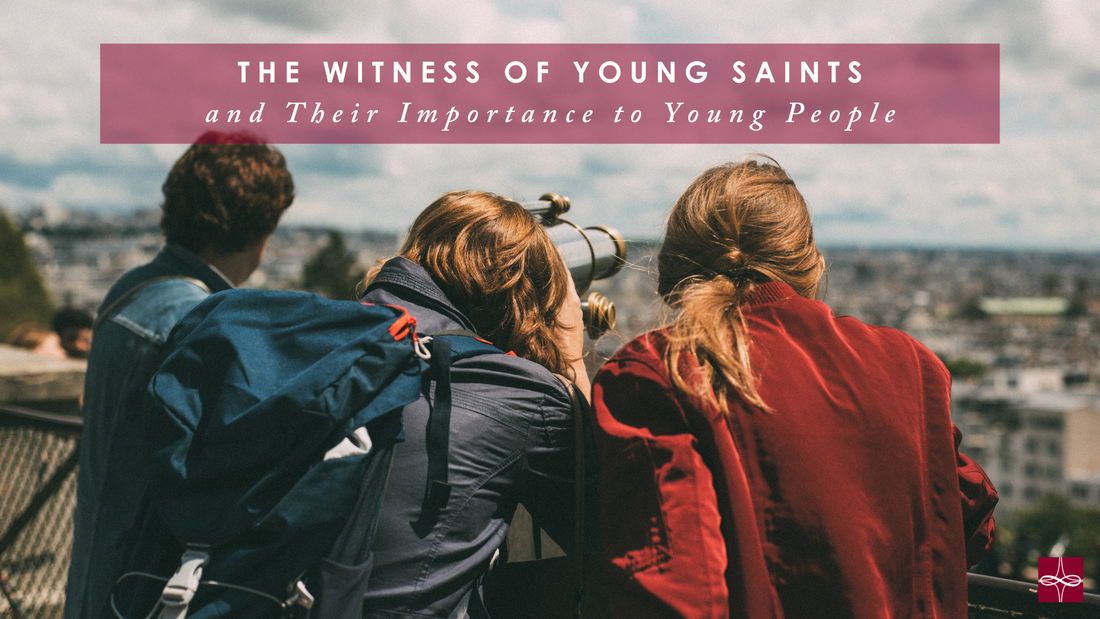
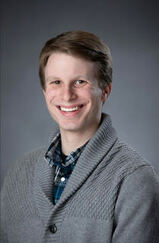
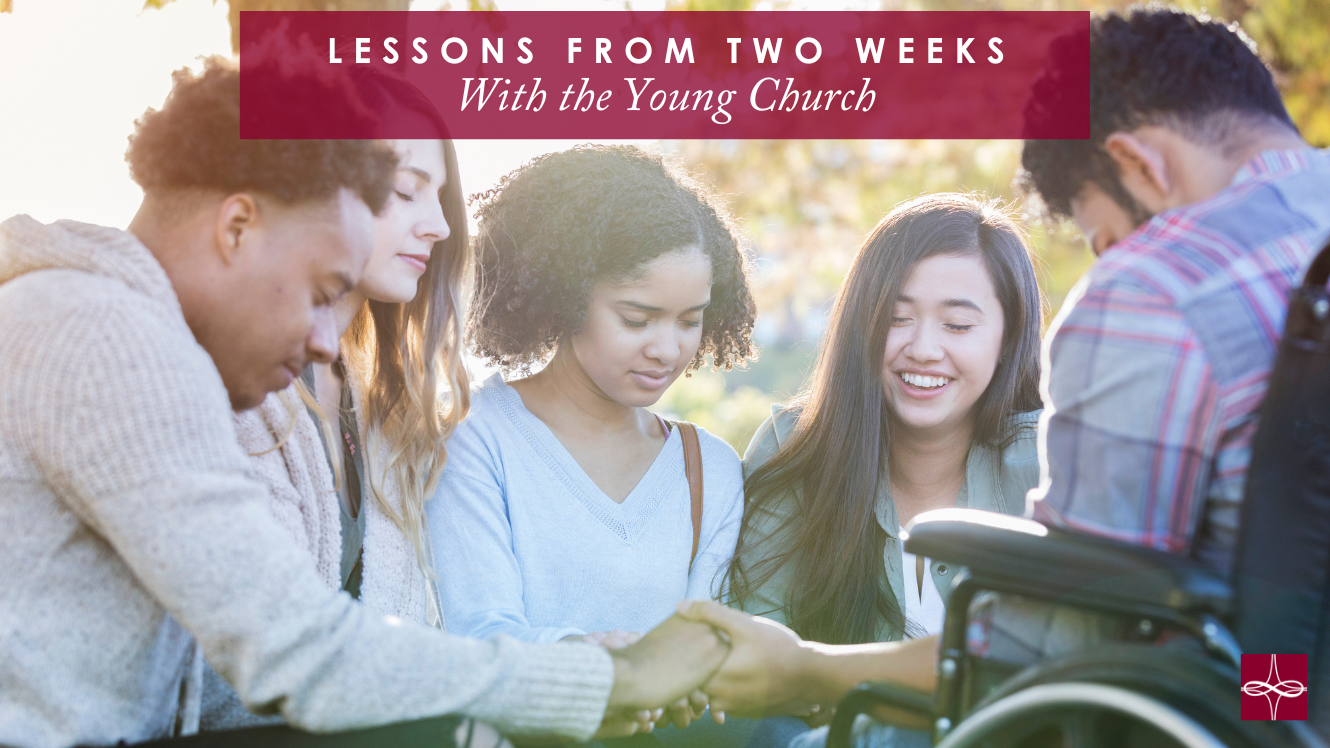
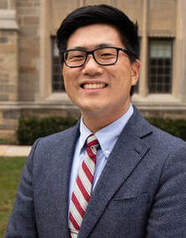
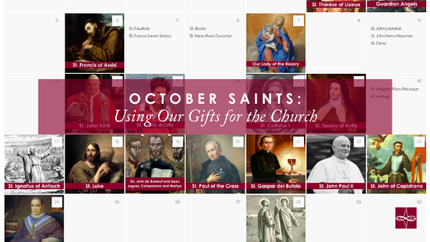
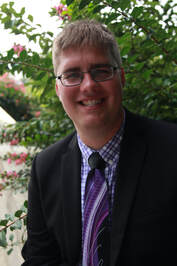

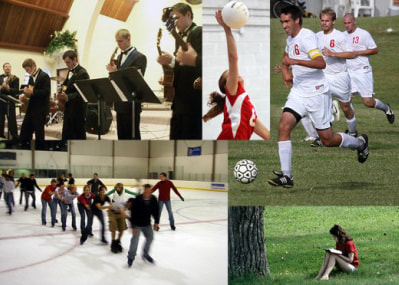
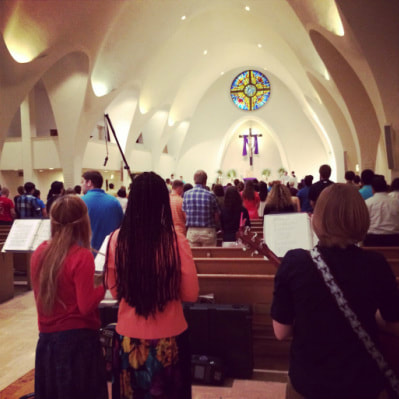

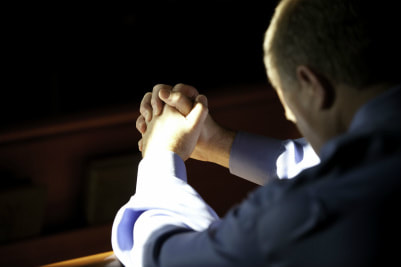

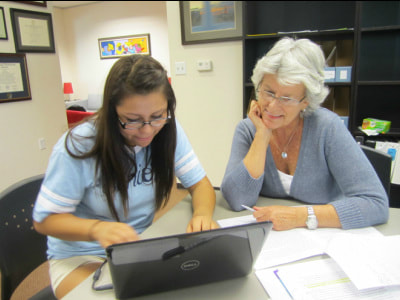
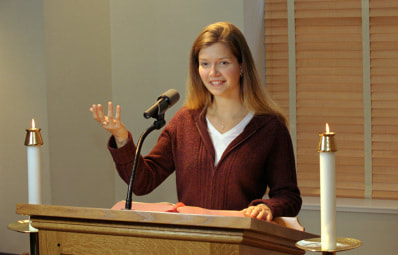
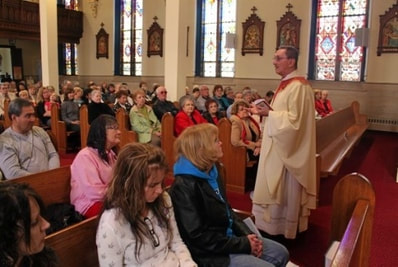
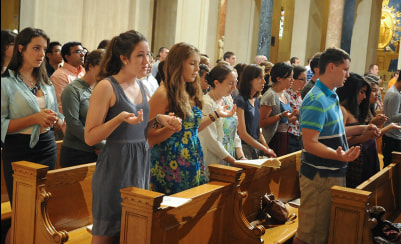

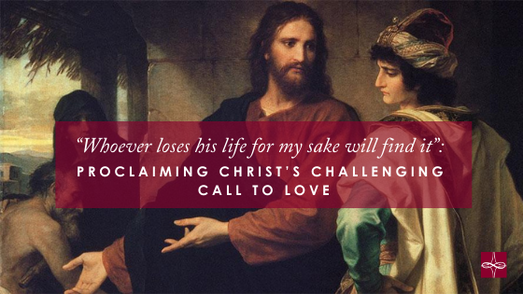
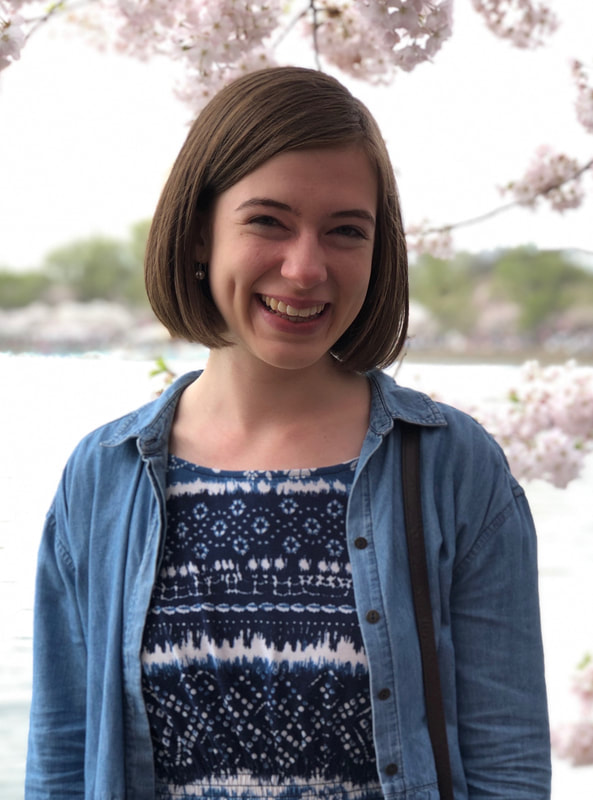
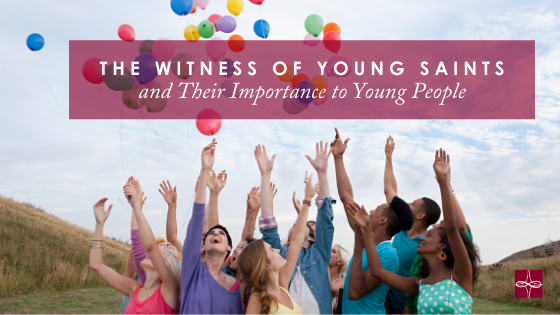
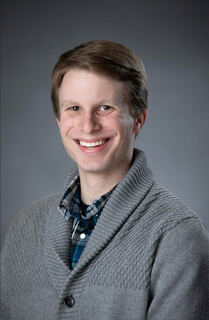

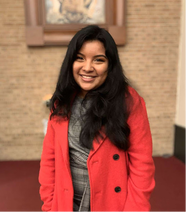
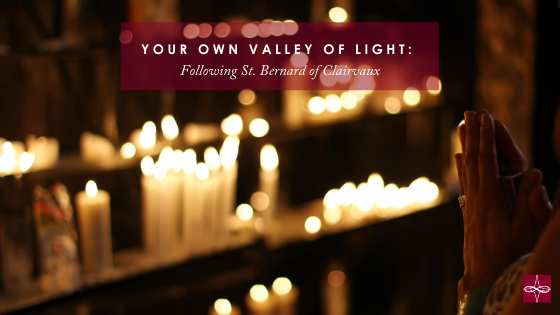



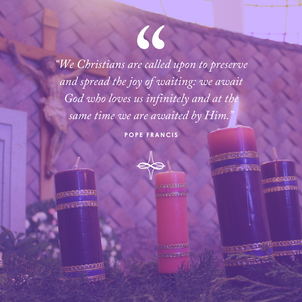
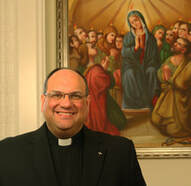
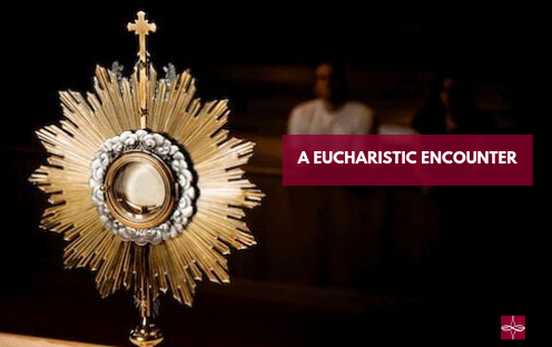
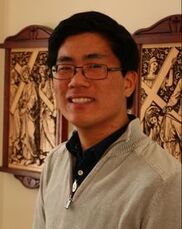
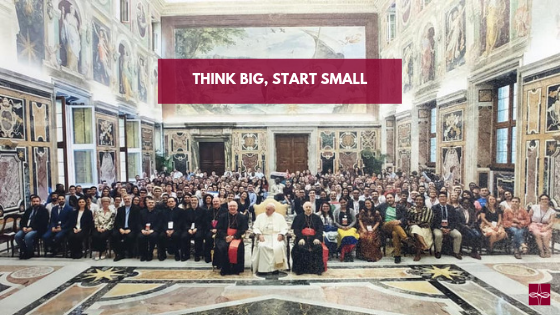
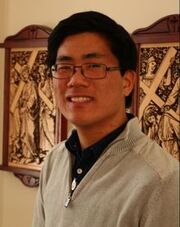
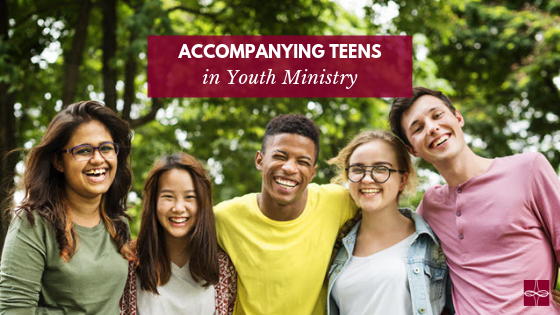
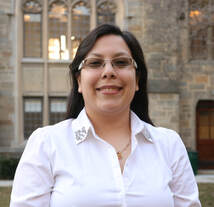
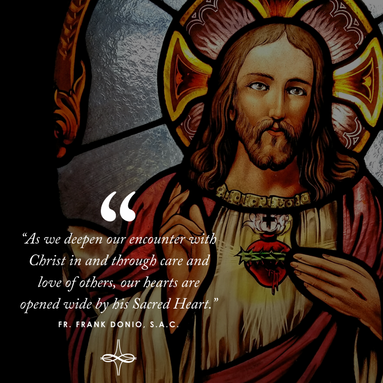
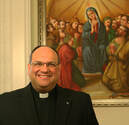
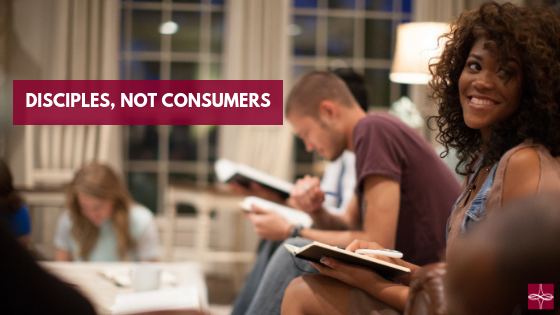
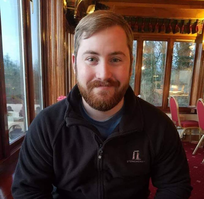
 RSS Feed
RSS Feed